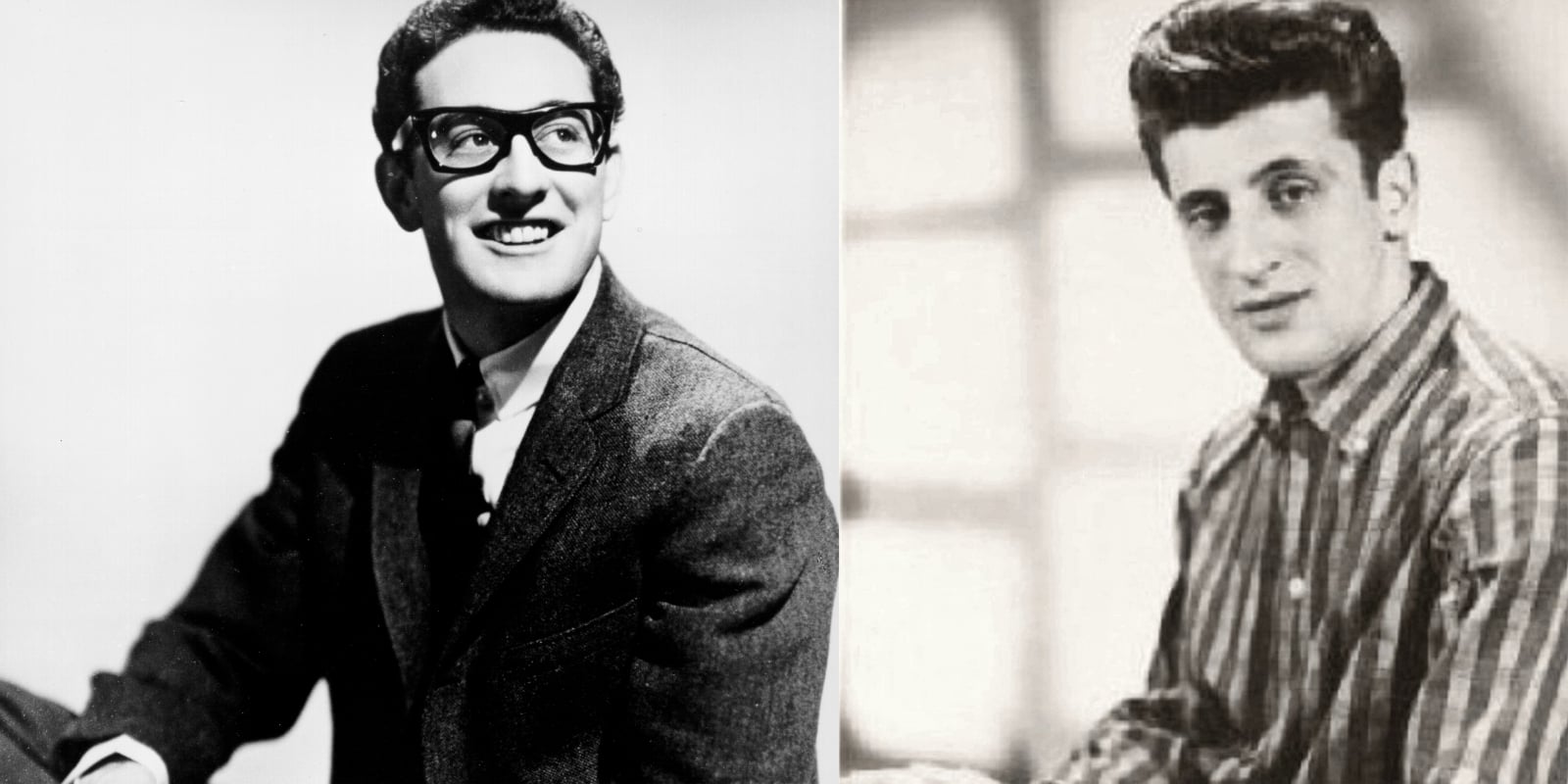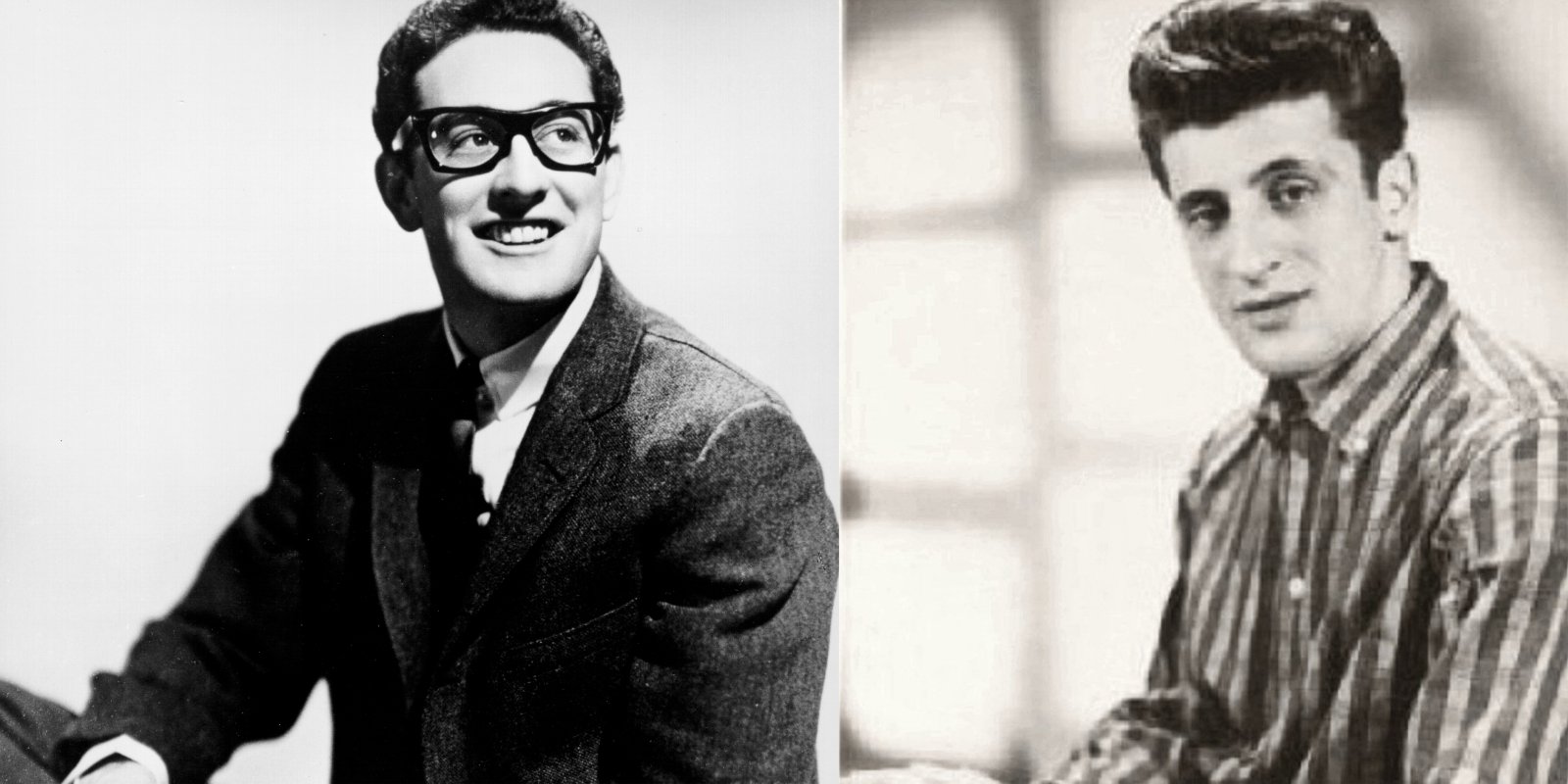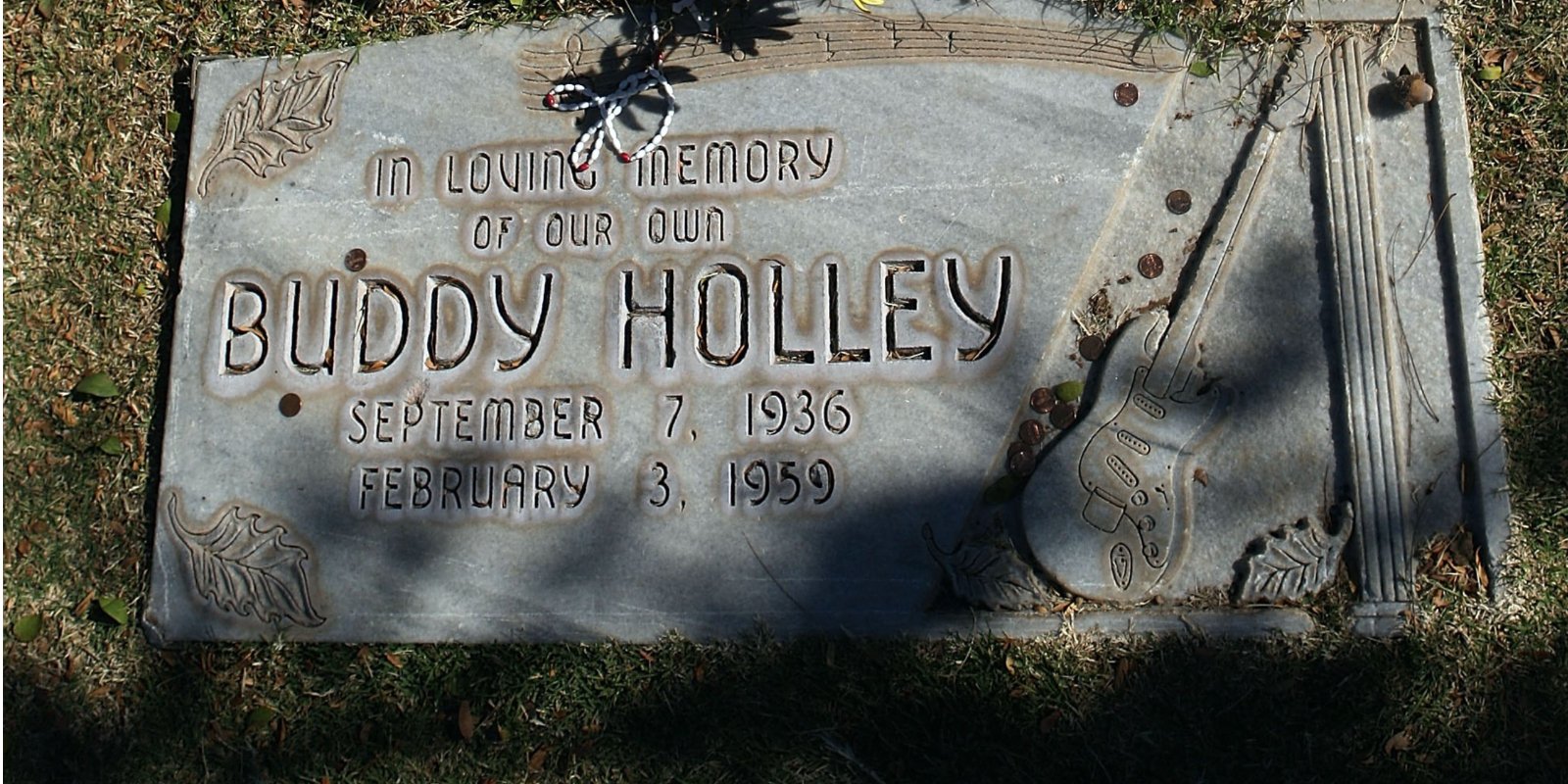
Lou Giordano’s Daughter Reflects on Her Father’s Bond With Buddy Holly 64 Years After the Day the Music Died
Buddy Holly was looking for a change in his music career in 1959. After several years of performing and recording with The Crickets, he wanted to branch out as a producer. He scouted new talent on his Decca record label; and came across two men whose lives he would exponentially change. One was country superstar Waylon Jennings. The other was Lou Giordano, my father. Sixty-four years after the day the music died, when Buddy perished in a plane crash alongside Ritchie Valens, the Big Bopper, and pilot Roger Peterson, I’m looking back at my father’s special relationship with Buddy

Lou Giordano was a jack-of-all-trades who dreamed of becoming a singing superstar
My father, Lou Giordano, was a man who always dreamed big. He lived life to the fullest, or at least as full as a man could on a truck driver’s salary. He worked 9-5 during the week and, decked out in a tuxedo on the weekends, sang at clubs in the New York metropolitan area.
His music dreams began humbly. One of 10 children, he acquired his first guitar through his brother Thomas. Picking up on the instrument quickly, Lou was encouraged to try his hand at playing music professionally by friends and family members.
Lou wrote dozens of songs that reflected the era’s themes: love, loss, and fun. He eventually acquired a record deal with the now-defunct Brunswick Records. In 1952, Brunswick was put under the management of Decca’s Coral Records subsidiary. That same year, Brunswick resumed releasing new material, initially as a rhythm and blues specialty label, adding pop music in 1957.
Just two short years later, Lou met Buddy Holly and found the missing link he was looking for to further his music career. However, fame wouldn’t come until after his and Buddy’s deaths.
Lou Giordano’s bond with Buddy Holly is immortalized in two iconic songs
By February 1959, Buddy had already had commercial success with the songs “True Love Ways,” “Words of Love,” “That’ll Be the Day,” and “Peggy Sue.” Subsequently, Buddy looked to his label for new talent to produce. In the book The Buddy Holly Story by Josh Goldrosen, Buddy’s wife, Maria Elena, clarifies Buddy’s intentions during that self-exploration period.
“Buddy didn’t have in mind just writing songs that fit his style and finding someone else to record them,” she said. “Instead, he wanted to try writing songs meant deliberately for somebody else in particular and to suit that singer’s style and potential audience.”
She continued, “Buddy meant to be really close to the artists he chose to work with. He wanted to write songs that really expressed how they felt.”
Buddy took Lou under his wing, writing a song for him called “Stay Close to Me.” The tune was the only one of Buddy’s compositions he had never recorded. Phil Everly, half of The Everly Brothers, also participated in the recording session at Beltone Records, held in Sept. 1958, where they also recorded “Don’t Cha Know.”
Lou sang lead while Buddy and Phil provided falsetto backing vocals. According to Roger White’s book on the Everly Brothers, Walk Right Back, Buddy and Phil backed Lou because they couldn’t afford female singers for the session. Also, since Buddy and Phil were under contract for their music, they didn’t want anyone else to recognize their voices.
Lou Giordano and Buddy Holly’s collaboration was lightning in a bottle

Fate had different plans for any future collaborations between Buddy and Lou. While on tour with The Big Bopper and Ritchie Valens, Buddy perished in a plane crash in Iowa. Lou was the first person to inform Maria Elena that her husband had died. She told her version of the events that transpired in the book The Buddy Holly Story.
Maria Elena claims she got a phone call from Lou. “He asked me if I had yet seen the television or listened to the radio. And when I told him I hadn’t, he said, ‘don’t turn them on; I’m on my way over.’ But I turned on the radio, and my aunt came in just as I heard the news.”
The only collaboration between Lou and Buddy was released two months after his death. The song was not a commercial success.
The ironic twist of this tale is that in the end, Dad got the notoriety he longed for years after his passing in December 1969. Because of that recording session, his link to Buddy Holly has made him famous in collectible music circles, and many of Buddy’s fans have covered the songs on YouTube.


